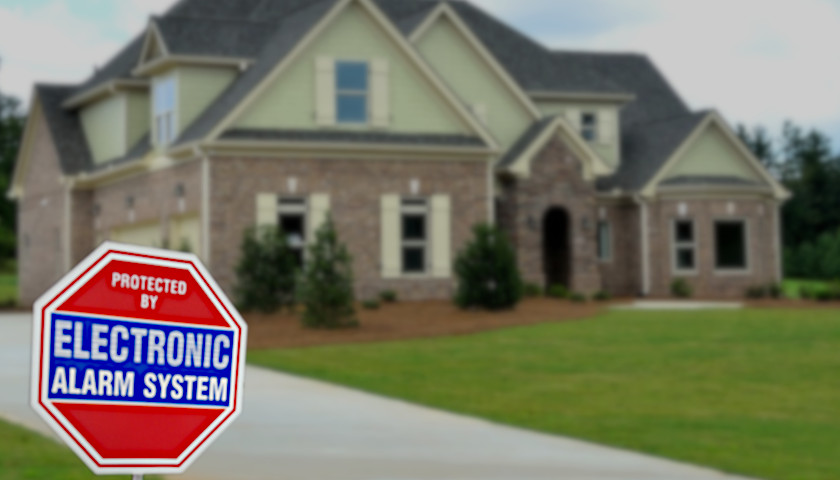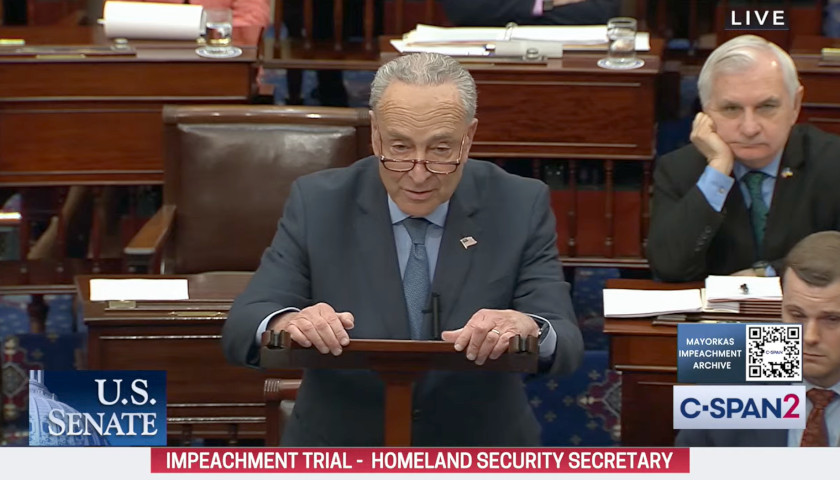Cities throughout the U.S. have started charging fees for home-alarm systems, but one watchdog organization in Ohio is pushing back, saying the fees amount to an unconstitutional “double taxation,” and has filed a lawsuit seeking to have them stopped.
The 1851 Center for Constitutional Law is suing the city of Cincinnati and hopes to get alarm fees banned throughout Ohio.
The legal action is brought on behalf of several homeowners and real estate investors who “face $800 fines for simply using home security alarms to protect their homes and rental properties,” the center states in a press release. This practice by homeowners, it says, is essentially the same as calling the Cincinnati police to inform them of potential criminal activity at their property.
The 1851 Center seeks preliminary injunctive relief pending a full hearing, claiming the city’s ordinance violates the freedom of speech by restraining and punishing the truthful reporting of criminal conduct while also “impermissibly double-taxing homeowners who already pay for police protection through their general taxes.”
Its argument is laid out as follows:
- The Ohio Constitution protects homeowners’ fundamental right to defend themselves and their houses, and cities cannot force homeowners to pay the city prior to exercising this right, especially when police assistance is not requested.
- Speech in defense of oneself and one’s property is just as vital to protect as political speech. Homeowners maintain a First Amendment right to share with police any evidence of criminal conduct on their properties, whether directly or through hiring an alarm company.
- Cincinnati’s “alarm fee” is an unconstitutional tax because the city spends it on anything it likes, annually collects more than twice what it spends on security alarm issues, and the fees are imposed irrespective of whether homeowners with alarms actually use more city services.
“Ohio cities’ new practice of forcing homeowners to pay a fee for the privilege of protecting themselves, their families, and their homes with a security alarm is not just an unconstitutional tax, but an outright scam, taxing those who report crime and forcing taxpayers to pay twice for police protection,” said Maurice Thompson, director of the 1851 Center. “Government should encourage self-defense and crime-reporting, rather than prohibiting such socially beneficial conduct.”
The case is pending before Judge Michael Barrett of the United States District Court for the Southern District of Ohio. However, the 1851 Center has moved to remand the case to state court.
Read the 1851 Center’s motion for preliminary injunction here.
Anyone can install their own security system without getting a home alarm permit. But, depending on one’s city of residence, homeowners who request any kind of remote monitoring or emergency response will find that their city may require a city-issued “alarm permit.” This permit can cost anywhere from $20 to $100 or more and must be renewed annually.
While Cincinnati’s alarm ordinance may be one of the most exorbitant in terms of cost, many cities do charge what they call a “false alarm fee” for repeated trips made by the police out to homes where alarms go off for no apparent reason. But to have an across-the-board fee like Cincinnati does is considered more aggressive.
And many others do, like Cincinnati, charge a “permit fee” just to have the alarm system connected to their police department.
Of course, like any fee or tax, once a city creates a new revenue producer, residents can expect it to be increased with regularity.
In St. Paul, Minnesota, for example, the city recently considered doubling its annual alarm permit from $28 to $58.
A recent letter from the city to alarm permit holders indicated that police responses to false alarms costs the city more than $2.6 million annually, and the city needs to recoup those losses, according to a report by the Pioneer Press.
The city council received written responses from more than 30 residents and business owners, almost none of them supportive.
“I call B.S. on that figure. The police are already on patrol and you are already paying them,” said Anthony Mahmood, proprietor of Aesop’s Table, a deli and catering company on North Dale Street. He said tripped alarms are classified as low priority by police and don’t always result in a response at all if officers are called away to a crime in progress.
Others say responsible alarm owners are being penalized for careless owners, and that many residents will simply avoid installing alarm systems altogether, knowing they’ll be charged high annual fees in perpetuity.
“My concern about the proposed changes is that raising the permit fee substantially may reduce the number of homes with alarm systems,” said Dan McIntyre, an East Side resident, in another letter.
According to Protect America, a major alarm company:
- In Austin, Texas, a residential permit costs $30 per year, and a business permit is $50.
- In Dallas, the price is almost double that of Austin. A residence costs $50, and a business costs $100.
- In San Antonio, the fee for home is $40, but $30 for those aged 65 and above, and $100 for businesses.
- In Omaha, Nebraska, a home is $25, while a business costs $50.
- In Los Angeles, a permit fee costs 35$ for both home and businesses, and $30 for renewals, while in El Paso, Texas, the residential permit costs $23.
– – –
Anthony Accardi is a writer and reporter for The Ohio Star.





